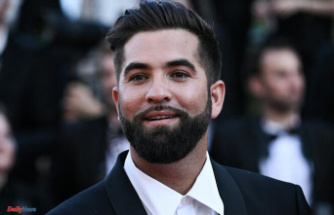Somewhere in Prenzlauer Berg, Sophie Passmann, Hengameh Yaghoobifarah and Reyhan Şahin meet and talk personally about their conflict. Pure wishful thinking. Instead, random Twitter lines are shot without leading to a discourse. Especially from Passman.
The 28-year-old author Sophie Passmann provoked a Twitter wave of criticism in the interview in "Annabelle" with statements on identity politics. There, Passmann speaks with a journalist about "political Instagram, superfluous representation, feuilleton boys, vanity".
Passmann's answers mostly contain controversial, even provocative theses. This sparked discussion and outrage on social media. Criticism came from the authors Hengameh Yaghoobifarah, Reyhan Şahin and Jasmina Kuhnke, among others. The loudest accusation directed against Passmann, writes the “Berliner Zeitung”: “Smugness. Passmann has used the achievements of black feminisms in recent years and now she is stabbing them in the back.”
The discussion revolved around the question of which group can empower itself over the other, whether Sophie Passmann boosted herself through identity politics, whether she betrayed it. First of all: The identity politics rule would exclude me from participating in the discourse because I am a white, albeit migrant, heterosexual man who is in a privileged position compared to white or black women. (A woman should write here instead of me. No punch line. No cynicism. I mean that seriously.)
Sophie Passmann's feminism stands up for those who benefit her: middle-class white women. The feminisms of Hengameh Yaghoobifarah and Reyhan Şahin do the same, only for their milieu. This debate is about protecting your own group and criticizing others for privileges, encouraging them to reflect. There's nothing wrong with that. Learning processes are important. criticism too.
Passmann is not about learning processes. She surfs the discourse. She provokes. The Passman wave hits us with its meaninglessness. Also the feminists who criticize them. Passmann wants to see herself on an intellectual meta-level: is she vegan? Isn't she? Does she write about white men or for white men? Is she an advocate of a bourgeois center? Or isn't she? For them: unimportant.
Sophie Passmann masters the provocation, and her critics engage in a meaningless discourse. Because Passmann is not about ideals, let alone content. She is concerned with the staging of her words. This is business. No feminism.
Note: Sophie Passmann has since apologized for her statements on Instagram.












